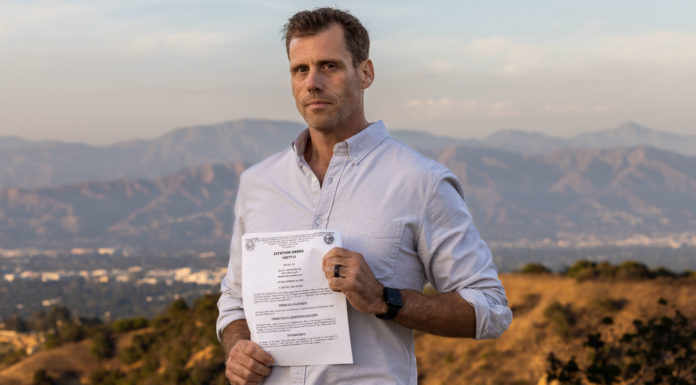(Patrick Carroll, Foundation for Economic Education) Ryan Crownholm is a self-described “serial entrepreneur” and the founder of a California-based business called MySitePlan.com. Founded in 2013, the business creates unofficial “site plans” for various clients using publicly available imagery. Hotels and resorts will sometimes use the plans as maps for their guests. Homeowners and contractors often use the plans in their permit applications when they are preparing to make minor changes to a property, such as building a shed or removing a tree.
Over the years, MySitePlan.com has built a strong reputation for itself, and customers are consistently impressed with the quality of the work and the short turn-around times (often within 24 hours).
“I had the first draft within 8 hours and they made changes to accommodate what the city needed. Good service!” writes one recent reviewer. “Amazing service! So incredibly quick! I will recommend this company to anyone in need of a site plan,” writes another.
Crownholm and his customers are certainly happy the business has been successful, but it seems not everyone feels this way. In December 2021, Crownholm was given a citation from the California Board for Professional Engineers, Land Surveyors, and Geologists. The order demanded that he “cease and desist from violating” the law and pay a fine of $1,000.
What was Crownholm’s crime? According to the Board, Crownholm and his company were illegally practicing land surveying without a license. In the Board’s view, “preparing site plans which depict the location of property lines, fixed works, and the geographical relationship thereto falls within the definition of land surveying,” and thus requires a license.
It’s worth noting that MySitePlan.com never claimed to create official land surveys by licensed surveyors. In fact, a banner at the top of their website plainly states, “This is not a legal survey, nor is it intended to be or replace one.”
Now, it’s tempting to say Crownholm should just get a license and move on, but it’s not that simple. Obtaining a land surveying license is an arduous process. In the state of California it requires six years of higher education and practical experience, passing four exams, and earning references from four existing licensees.
So rather than getting a license or shutting down his business, Crownholm has chosen to take the Board to court. On September 29, Crownholm joined with the Institute for Justice to file a federal lawsuit against the Board, claiming that the regulation violates his First Amendment right to free speech.
“California regulators are strangling entrepreneurs, like me, with red tape even though customers are pleased with the valuable services we provide,” Crownholm said. “Prosecuting my company hurts homeowners, contractors, landscapers, farmers, wedding venues and others who depend on my service.”
“California’s regulations go far beyond what other surveying regulators think is appropriate,” said Institute for Justice Attorney Mike Greenberg.
“This is yet another example of an established industry using the government to shut down popular, innovative competition. If read literally, California’s laws could harm services everyday people use such as Uber and Google Maps. It would even criminalize drawing a makeshift map on a napkin to help a lost tourist find the way to their destination.”
The question on everyone’s mind, of course, is why? Why would this regulatory board go after an entrepreneur when he’s clearly not in the business of official land surveying?
The simplest explanation is that they’re just really eager to enforce the law to the letter. That seems to be the argument they’re going with. But if that’s the case, why don’t they also crack down on the homeowners and contractors who regularly make identical site plan drawings? As the Institute for Justice press release notes, “California’s own building departments teach [unlicensed] homeowners and contractors how to make the exact same drawings Ryan makes.”
So if litigiousness is the goal, why single out MySitePlan.com?
Perhaps they think he’s taking safety shortcuts, but that makes no sense. There’s nothing dangerous about what he’s doing. Maybe they’re concerned he’s a fraud, and that the quality of his product doesn’t match what he promises? It’s possible, but a quick glance at his glowing reviews ought to set the record straight on that. Maybe they think he’s misrepresenting himself, pretending to have a license when he really doesn’t? Again, that makes no sense. He’s very explicit on the website that he doesn’t do official land surveys.
Perhaps they just think it’s unfair that everyone else has to go through an arduous licensing process while he gets to avoid it despite doing very similar work. That would be understandable, but if it was really just about fairness, wouldn’t it make more sense to push for scrapping the burdens on everyone else rather than imposing those burdens on him?
None of these motives make much sense.
There’s another possible motive, however, and that’s the malicious one. Perhaps the regulators were simply looking to protect licensed surveyors from competition. After all, less competition means higher prices and more business for those who have jumped through the hoops.
…
Though government licensing may seem like a good way to protect consumers, the reality is that these schemes unnecessarily restrict competition, with fewer options and higher prices being the inevitable result.



